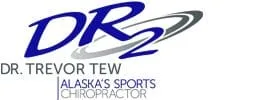Your IQ that's measured in school has to do with problem solving - mental gymnastics. Your spinal IQ also has to do with problem solving - these are "problems" of the physical kind.
How far to bend over to lift those grocery bags out of your car's trunk? How much muscle force is necessary to pick up and carry your five-year-old child? What specific muscles are needed to maintain your "downward dog" position for 30 seconds in yoga class? How far can your back muscles stretch when you do a back bend at the ballet barre? These are the problems your spinal IQ tries to solve.
Spinal IQ is an inborn ability. Our bodies were designed for the rigors of physical work - they are very smart and very adaptable. One of our built-in control systems is the specialized set of nerve endings known as proprioceptors.
Proprioception is our internal awareness of position in three-dimensional space.1,2 This three-dimensional positioning allows us to keep our balance when we walk or run. Proprioception tells our muscles and joints how to work together to throw a baseball from third to first, to drive to the basketball hoop and sink a lay-up, or to hit a tennis ball to the corner of the opponent's service box and win the point.
Proprioception is very important in spinal IQ. The spine is a complex system of bones, joints, muscles, and ligaments - a smart proprioception system helps all the parts work together smoothly and seamlessly.
To keep all the parts functioning we need to take an active role. In modern society, if we're not proactive, it's easy for our bodies to break down. Two key strategies for maintaining high levels of spinal IQ are regular strenuous exercise and regular chiropractic check-ups.
Exercise helps our bodies stay smart.3 When we exercise, our joints are mechanically stressed and challenged throughout their complete ranges of motion. This activity stimulates proprioceptors - training them to do their job well and building new and stronger connections between nerve cells. Exercise also builds muscle strength and flexibility, and in the process the muscles are getting smarter, too.
Chiropractic care enhances the benefits of your exercise program by helping ensure optimal functioning of your spine and nerve system. With regular chiropractic care, your proprioceptive system is optimized and your body's ability to adapt to physical challenges is restored.
Your chiropractor will be glad to assist you in designed an exercise program that will work for you, helping you to improve your spinal IQ and your health.
1Armstrong B, et al: Head and neck position sense. Sports Med 38(2):101-117, 2008
2Chow DH, et al: Changes in spinal curvature and proprioception of schoolboys carrying different weights of backpack. Ergonomics 50(12):2148-2156, 2007
3Akuthota V, et al: Core stability exercise principles. Curr Sports Med Rep 7(1):39-44, 2008
Your Spinal IQ
- Created in Newsletter Library, Wellness
Location
Find us on the map
Office Hours
Our Regular Schedule
Monday:
9:00 am-6:00 pm
Tuesday:
9:00 am-6:00 pm
Wednesday:
9:00 am-6:00 pm
Thursday:
9:00 am-6:00 pm
Friday:
9:00 am-2:00 pm
Saturday:
Closed
Sunday:
Closed
